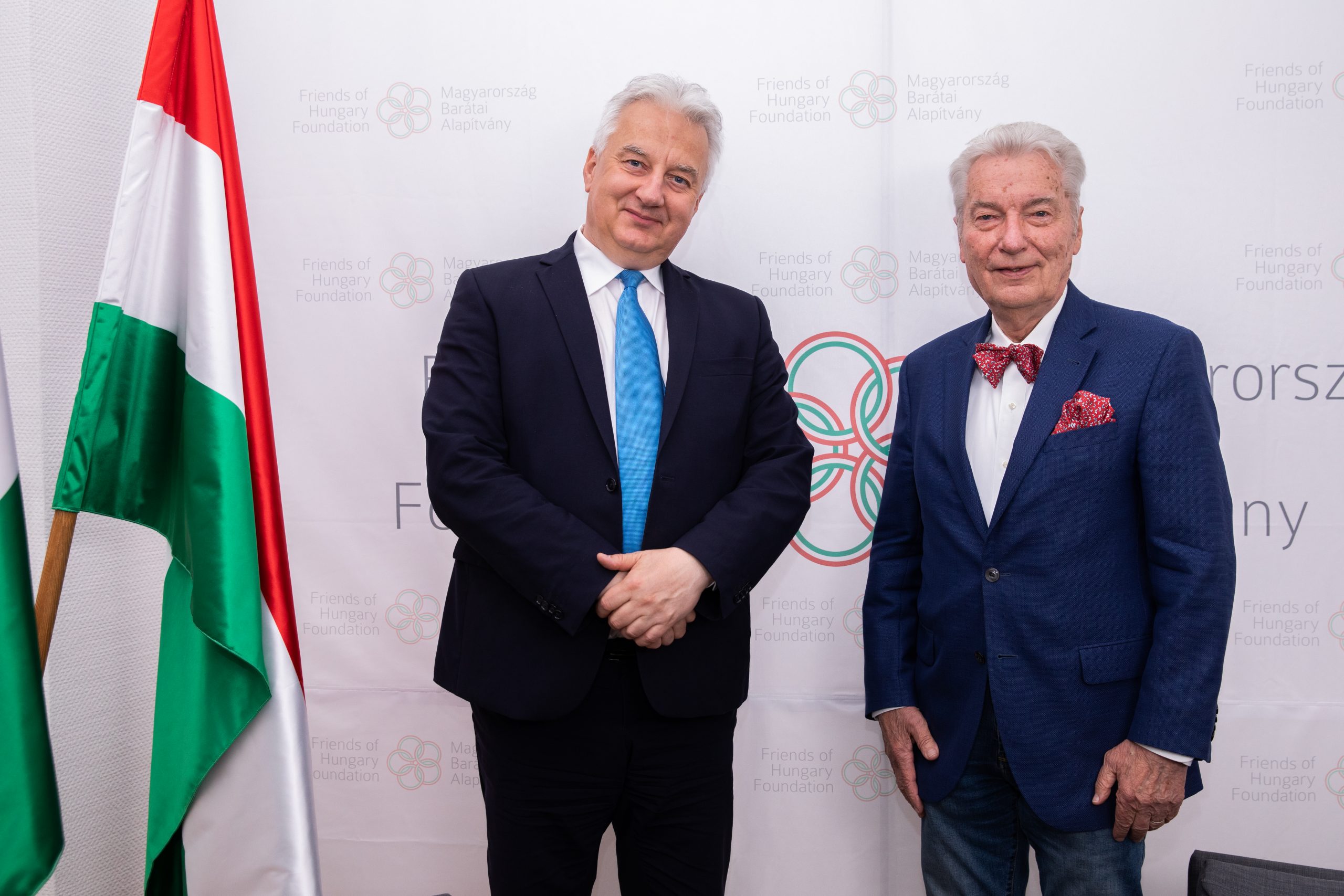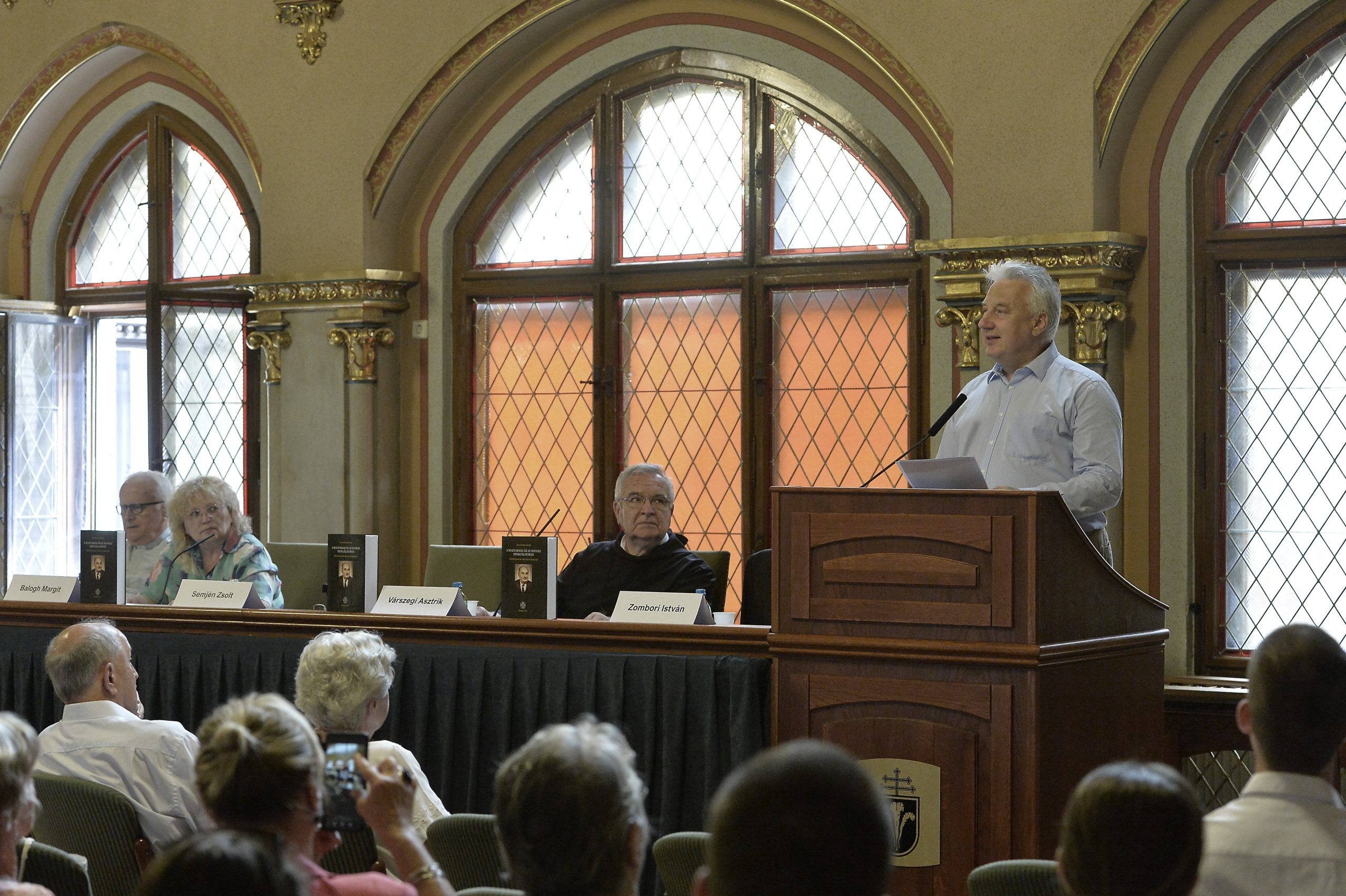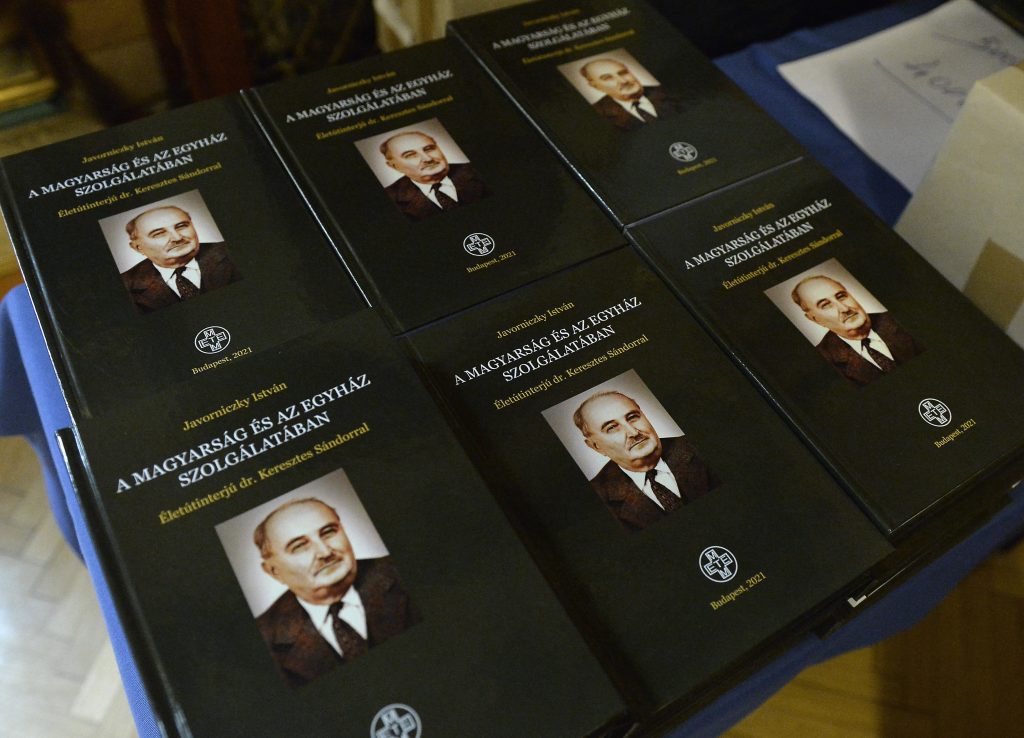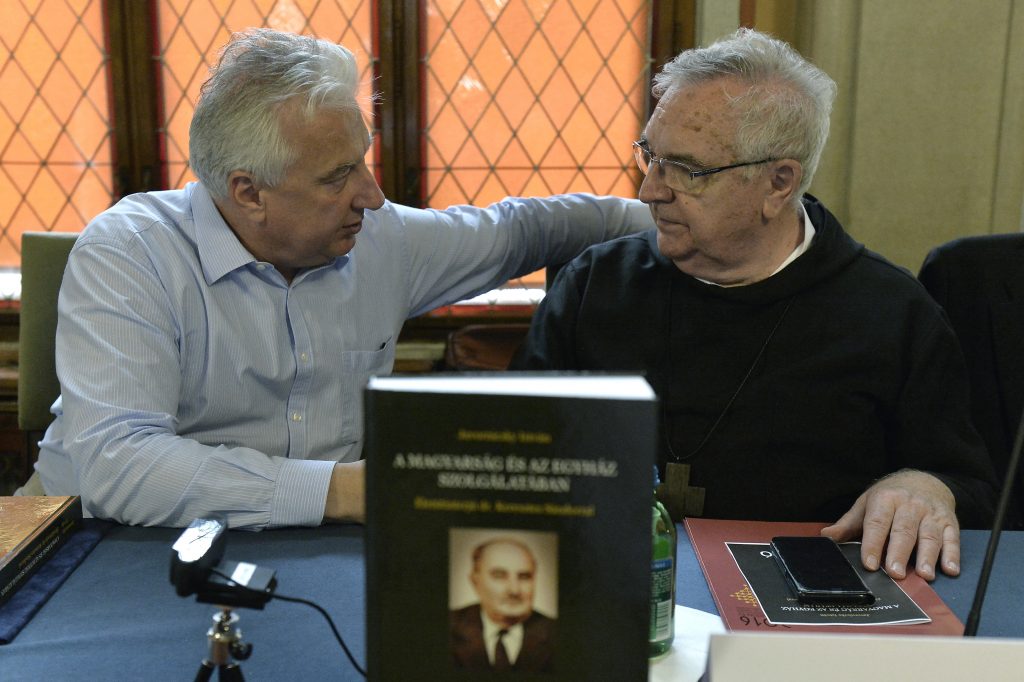
Adherence to the concept of Hungary as a "Global Nation," is the foundation for the long-term survival of Hungarian identity.Continue reading

July 16 marked the commemoration of one of the key figures of the history of Hungarian Christian democracy; Sándor Keresztes. In the Service of Hungary and the Church by István Javorniczky, a volume on two biographical interviews regarding Keresztes’ career, was officially published on Friday. Speaking at the book’s presentation, KDNP President and Deputy Prime Minister Zsolt Semjén honored the memory of Sándor Keresztes’ loyalty and service to the Catholic Church in the most difficult of times.
In the Service of Hungary and the Church details a biographical interview between István Javorniczky and Sándor Keresztes Sr. in September of 1988, during Hungary’s political transformation and near-freedom from Soviet control.
Javorniczky conducted a second interview with Keresztes in 1994, asking him about the transition from communism to democracy and his service as Ambassador to the Holy See. The interviews were compiled, annotated, and indexed by Keresztes’ son, András Keresztes, between 2019 and 2020.

The new book about Sándor Keresztes, one of the key figures of the history of Hungarian Christian democracy, at the Péter Pázmány Catholic University on July 16, 2021. Photo by Lajos Soós/MTI
Sándor Keresztes was born into a Transylvanian family in 1919. Growing up he took part in multiple youth organizations, aiding Bishop Áron Márton in the interests of the Hungarian community. He completed a political science degree at the University of Kolozsvár.
Keresztes escaped mandatory service in the Romanian military in 1944, fleeing to Budapest. There he took part in the rescue of Jews from the Nazis, for which he was arrested by the Arrow Cross Party, barely avoiding execution.
It was in 1945 when he began helping István Barankovics in the organization of the Democratic People’s Party (DNP), the predecessor of the Christian Democratic People’s Party (KDNP). Keresztes became a member of Parliament for DNP in 1947, a post which the communist Rákosi government removed him from in 1948 on the claim that he had a “clerical fascist” past.
Keresztes was once again interned in 1957 after helping reignite DNP in 1956, but he was eventually able to regain his freedom after some compromise. The politician received nonstop criticism, and was even subject to police surveillance until 1989, but the documents revealed around his life’s work proved his undying loyalty to the Church, free from any kind of political blackmail.

Zsolt Semjén, Deputy Prime Minister and KDNP President (left) and Asztrik Várszegi, Archabbot Emeritus of Pannonhalma Archabbey, at the book launch. Photo by Lajos Soós/MTI
He took part in helping Hungary transition to democracy, joining the newly formed Christian Democratic People’s Party and serving as its president between 1989 and 1990. He then became a representative in the National Assembly, as well as the very first ambassador to the Vatican. Through his negotiations with the Holy See, Keresztes was able to turn the rights of national minorities into a European issue.
Javorniczky’s interviews with Keresztes shed light on the statesman’s work for Christian democracy, as well as providing an understanding of the period between the forced dismantlement of the original Democratic People’s Party and its reunification into the modern Christian Democratic People’s Party .
At Friday’s book presentation in Budapest, KDNP President Zsolt Semjén emphasized Keresztes’ extensive life accomplishments, commending him for remaining loyal to the Church as a Catholic, and to Christian democracy as a politician.
The party president also highlighted Keresztes’ commitment to his roots in Transylvania, for example his involvement in helping Gyulafehérvár (Alba lulia) reach the status of archdiocese.
Semjén said Keresztes never pushed himself to be the center of attention, but when he was in the limelight, he would always stand by the right values and ideals.
Asztrik Várszegi, Archabbot Emeritus of Pannonhalma Archabbey, who had a friendship with Keresztes which spanned decades, spoke about the rich picture the volume provides of the public figure’s life, career, and “humane, religious, and political belief system.”
Várszegi emphasized Keresztes’ pure, wise, and serene personality, as well as the respect he showed towards other people.
With the organizational work of István Zombori and the recommendation of Zsolt Semjén, In the Service of Hungary and the Church was published on July 16 by the Historia Ecclesiastica Hungarica Foundation and the Hungarian Church History Encyclopedia’s editorial board.
In the featured photo: KDNP President and Deputy Prime Minister Zsolt Semjén. Photo by Lajos Soós/MTI